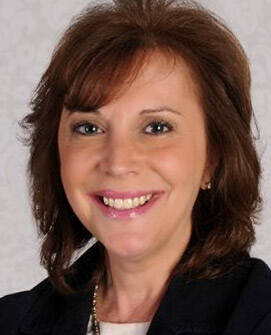The dignity of work and workers’ rights are recurring motifs throughout Scripture. “You shall not withhold the wages of poor and needy workers, whether other Israelites or aliens,” says the Book of Deuteronomy. Pope Francis, in his address to Congress, stressed worker concerns, saying he spoke for “the thousands of men and women who strive each day to do an honest day’s work, to bring home their daily bread...to build a better life for their families.”
Even in the modern age of labor regulation, many American workers still don’t receive a full day’s pay for a full day’s work. These employees usually occupy the lowest rungs of the pay ladder, working in fast food, retail, garment assembly, poultry processing, the service industry and building trades.
Some companies cited are part of familiar national chains we might patronize on a regular basis. Take, for example, Papa John’s Pizza. Four of its franchises in New York recently agreed to pay close to $500,000 in back pay owed to workers. Before closing all its restaurants in 2014, Chicago-based HomeMade Pizza, once a favorite of TV personality Oprah Winfrey, was forced to pay back wages to six workers who said they were paid less than the minimum wage and were denied their final paycheck.
Helping workers at those two companies—and many others—is a small advocacy group working out of a fourth-floor office belonging to the Edgewater Presbyterian Church on Chicago’s north side. For 20 years, Interfaith Worker Justice has been a consistent, sometimes solitary voice investigating wage theft and other worker abuses.
Wage theft occurs when employers fail to pay the legal minimum wage or overtime, force workers to work off the clock, withhold tips or final paychecks and misclassify workers as independent contractors to avoid paying payroll taxes, workers’ compensation and other benefits. Interfaith Worker Justice estimates that about $50 billion in wage theft occurs each year. Executive Director Rudy Lopez calls it “a national disgrace.”
From the start, Interfaith Worker Justice tied its mission to religious principles. Its charismatic founder, Kim Bobo, started the organization with a $5,000 inheritance from an aunt. Bobo believed religious institutions represented natural partners for promoting worker justice.
When she began calling local churches, she often found staff or volunteers who worked on alleviating hunger or homelessness. “When I got on the phone and asked who was handling labor issues, it was like, huh?” Bobo recalls.
That changed once Bobo enlisted the help of several well-known Chicago religious leaders, including Rabbi Robert Marx, Bishop Jesse DeWitt of the United Methodist Church and the late Msgr. Jack Egan. Bobo’s message to churches was simple: hunger, homelessness, domestic violence and the breakdown of families are often directly connected to the inability to earn a living wage.
In its early days, Interfaith Worker Justice promoted union membership, fair wages and employee benefits. Bobo often confronted religious institutions as well, including Catholic hospitals, parishes and schools, about the way they compensated their own employees. “Those were some of the most horrible conversations,” she recalls. Still, the Interfaith Worker Justice movement spread, and now includes 20 worker centers across the country that assist and advise employees.
I.W.J. has designated Nov. 18 a “Day of Action” to highlight wage theft. Lopez says he hopes an increasing number of churches will form committees and discussion groups dedicated to workplace concerns. The group is also advocating several reforms, including targeted federal investigations of industries where wage theft has been a problem; requiring employers to supply workers with pay stubs that show hours, deductions and how wages were calculated; removing the statute of limitations on wage claims; and creating stiffer minimum penalties for violations.
Ordinary citizens can also take action, Lopez says. In hiring a contractor or service provider, ask how much workers will be paid. Will they be paid overtime? Leave cash tips when possible or ask how a server will be compensated for a credit card tip. Founder Kim Bobo says I.W.J. also plans to highlight ethical business owners. “We’ve got to start affirming the good guys,” she says.








